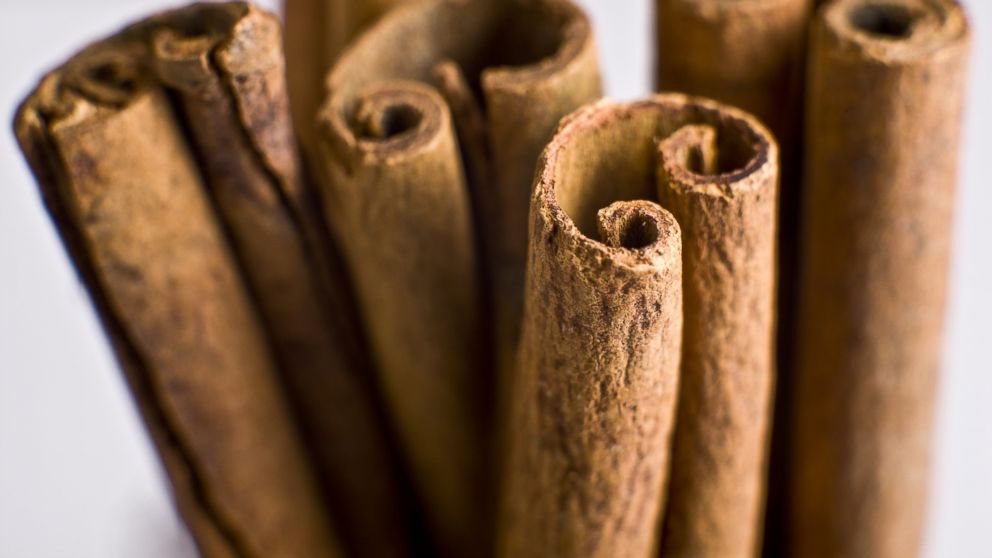6 Scents That Have the Power to Heal
Take our crash course in aromatherapy.

June 14, 2014— -- intro: No longer just the domain of new-age spas and hippie enclaves, essential oils have become a $1.2 billion business. The plant-extracted, highly concentrated liquids have historically been selling points in beauty and cleaning products—and now research proves that when inhaled properly, they're also good medicine, says Brent Bauer, M.D., director of the Complementary and Integrative Medicine program at the Mayo Clinic.
Dozens of studies have found that essential oils can both protect your long-term health and relieve symptoms of common maladies. They can help lower stress levels, relieve pain, improve mood, and quell cravings and nausea. Essential oils have even been demonstrated in lab studies to kill flu, E. coli, and cancer cells.
"Research shows that, when inhaled, the oils activate your brain's hypothalamus, which controls hormones, energy, and drive," says Illup Louis Gravengaard, a director of alchemy at I AM Enlightened Creations, an aromatherapy and healthy-lifestyle company. Different essential oils trigger different responses in the brain, which, in turn, directs your nervous system to, say, chill out or spring into action.
7 Smart Ways to Keep Your Brain Sharp for Decades
The findings are promising (imagine swapping pills for scents!), but they come with a caveat: "Whatever is powerful enough to exert a beneficial effect in the body is powerful enough to exert a negative effect," says Bauer. Essential oils release volatile organic compounds (VOCs), off-gases often linked to paints and pesticides. (Some VOCs are more hazardous than others, and "volatile" just means a substance can evaporate.) So while, for instance, moderate exposure to essential oils can be heart-healthy, prolonged exposure can pose cardiac risks.
The key is staying within a 15-to 60-minute sweet spot—never breathe in essential oils for more than one hour at a time. Always follow the instructions on the bottle, and if you are taking any medications or suffer from a chronic health condition, ask your doctor before you start practicing aromatherapy. Just as with any other medicine, essential oils must be used correctly to yield huge health rewards.
Since they're not yet FDA-regulated, the essential oils on store shelves may not be the real thing, says essential-oil expert Megan Schwarz, creator of the blog Seed to Serum.
The Scent That Could Help You Make Healthier Eating Choices
A diffuser is the most effective way to unleash essential oils into the air, but if you don't have one (they run from $25 to $200), you can drip oil into a bowl of steaming hot water. In either case, use one or two drops of one oil at a time. Stand a few feet away and take 10 deep breaths, then breathe normally. If you stick within the safe time limit and open a window when you're done, you can practice aromatherapy every day. (At work or, say, in your car? Place one drop of one oil on a cotton ball, put it under your nose, and inhale normally for one to two minutes.)
quicklist: 1category: Healing Scentstitle: Sageurl:text: Best for: Blood-Pressure Reduction.
In a July 2013 study, women who smelled clary sage experienced reduced blood pressure and breathing rates; they were also able to relax during a stressful medical exam.Bonus perks: Helps amp up memory and attention
quicklist: 2category: Healing Scentstitle: Pepperminturl:text: Best for: Stress Relief
Research shows that breathing in eau de peppermint can decrease the body's levels of cortisol, a stress hormone.
Bonus perks: Reduces both fatigue and (score!) chocolate cravings.
The Scent That Can Ward Off Hunger
quicklist: 3category: Healing Scentstitle: Orangeurl:text: Best for: Decreasing Anxiety
A study found that people who sniffed it before a stressful test were able to stay calm under pressure, sans anxiety spikes, possibly because the scent can help slash stress hormones.
Bonus perk: Elevates mood.
quicklist: 4category: Healing Scentstitle: Rosemaryurl:text: Best for: Enhancing Brainpower
Breathing it in can improve speed and accuracy during demanding mental tasks, per a 2012 study. Other research found its scent left people feeling refreshed and mentally stimulated.
Bonus perks: Boosts energy and lowers fatigue.
The Scent That Improves Your Memory
quicklist: 5category: Healing Scentstitle: Cinnamonurl:text: Best for: Improving Focus
It may stoke the area of the brain that governs alertness. For example, research found that drivers were more focused and less flustered after breathing in cinnamon-oil scents.
Bonus perks: Increases concentration and reduces frustration.
quicklist: 6category: Healing Scentstitle: Lavenderurl:text: Best for: Relaxation; Relieving PMS
The scent can trigger the body's "rest and digest" response, promoting relaxation. A 2013 study found that it also eases pre-period symptoms such as mental confusion and depression.
Bonus perks: Decreases anxiety, insomnia and migraine pain.